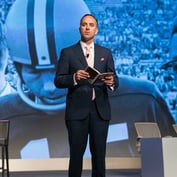The nation’s high school students are not getting much smarter about financial matters, a new study reveals.
The students taking the survey, sponsored by the Jump$tart Coalition, Washington, did show an increased aptitude for managing such financial resources as credit cards, insurance, retirement funds and savings accounts than an earlier survey in 2004.
However, the survey of 5775 high school seniors in 37 states found an average score of only 52.4%, very close to the 52.3% found in Jump$tart’s 2003-04 survey. The best results actually were seen in the nonprofit organization’s 1997-98 survey, when students averaged 57.3%.
“Despite the attention now paid to the lack of financial literacy, the problem is not about to resolve itself any time soon,” said Lewis Mandell, professor of finance and managerial economics at State University of New York’s Buffalo School of Management, who conducted the survey.
In the latest survey, white students scored an average of 55%, while African Americans scored 45% and Hispanics, 47%.
Asked whether they thought stocks are likely to have a higher average return than savings bonds, savings accounts and checking accounts over the next 18 years, just 14% agreed. In point of fact, there has never been an 18 years period when this was not true, Jump$tart observes. That was the lowest percentage answering the question affirmatively since the surveys began in 1997.








 April 06, 2006 at 10:56 AM
April 06, 2006 at 10:56 AM










